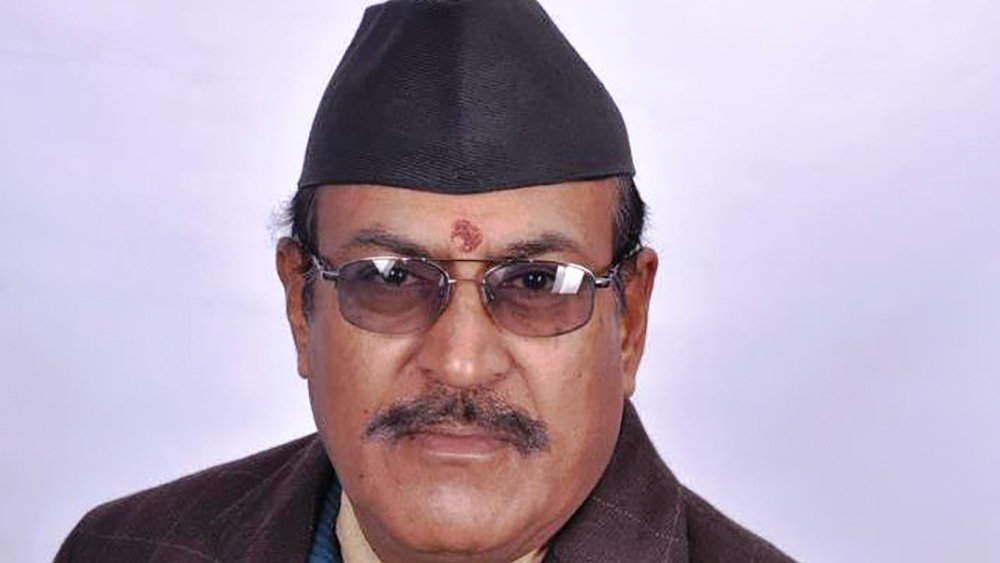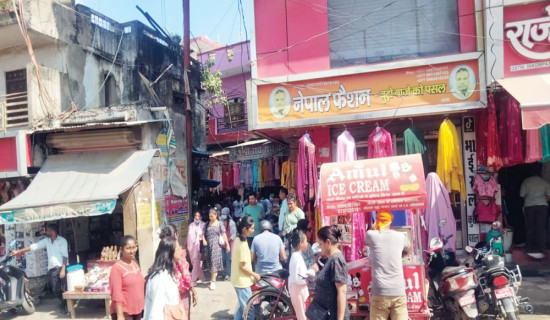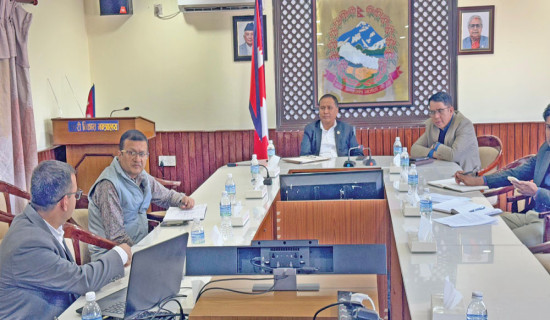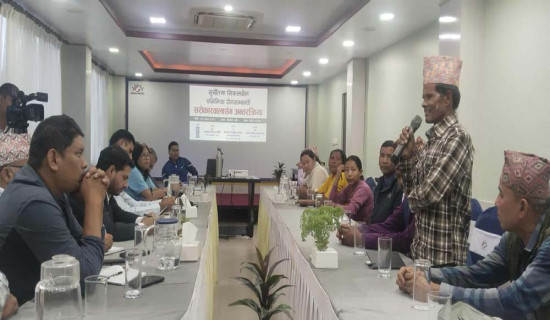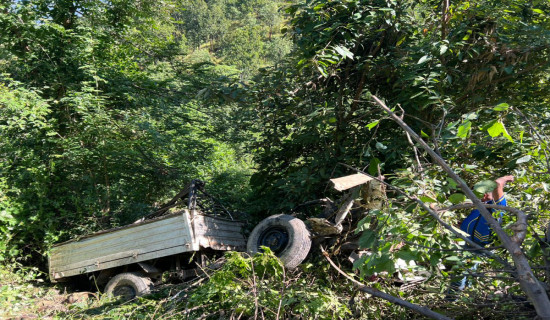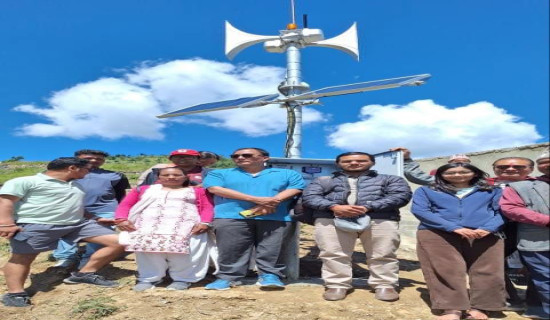- Sunday, 19 October 2025
Cabinet decisions
Cabinet decisions: High-level judicial commission under ex-judge Karki's coordination
Kathmandu, Sept 21: The government has decided to form a high level judicial commission under the coordination of former judge Gauri Bahadur Karki to study and investigate the incidents during the protest occurred on September 8-9.
The members of the commission are former Deputy Inspector General of Nepal Police, Bigyan Raj Sharma, and legal expert Bishweshwor Prasad Bhandari. They are given three months' term.
Similarly, the Cabinet meeting held on Sunday decided to appoint former Deputy Executive Director at Nepal Electricity Authority, Manoj Silwal, as the Executive Director of the Authority. He will have four years' term in office.
Current Executive Director at Authority, Hitendra Dev Shakya, has been appointed as a specialist at Hydro and Energy Commission.
Home Minister Om Prakash Aryal shared the Cabinet decisions that Additional Inspector General of Nepal Police, Dr Manoj Kumar KC, was named the Chief of Central Investigation Bureau of Nepal Police.
An assessment of the loss and damage of public properties during the Gen-Z protest would be carried out by the National Planning Commission having representatives of the National Disaster Risk Reduction and Management Authority, thematic ministries and Gen-Z. They are mandated to submit a report within 45 days.
Finance Minister Dr Rameshwor Khanal informed that government offices, Nepal Rastra Bank and Insurance Companies would launch relief schemes in a bid to resume the industries and trade firms facing adverse situation in the wake of Gen-Z protest.
The damaged vehicles and machines of Singha Durbar complex would be sold in auction under the coordination of Ministry of Urban Development while the Chief District Officers would coordinate for such works in the related districts.
Minister Khanal further shared that the government would provide 50 percent discount in the import of materials to be used for reconstruction of the damaged property. The deadline for the loan settlement would be extended for the industries impacted during the protest.
The small-scale and random projects of less than Rs 30 million, and the project not listed in the project banks or listed later under political influence would be wiped out by the government. The construction companies which have accomplished the undertaking would be paid, the Minister explained.
A reconstruction fund would be established by the government to advance reconstruction works. Anyone living in the country and abroad can chip in the fund, while the bank and financial institutes and industries would also contribute to the fund as part of the corporate social responsibility.
Even a committee on physical infrastructure and reconstruction committee would be formed for it. (RSS)

